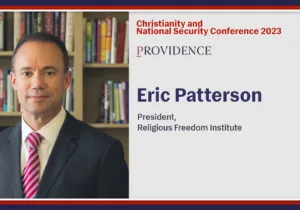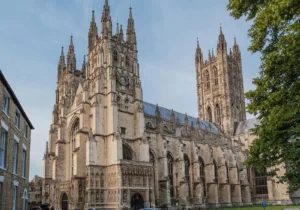Ideas are not enough. Teaching in a history department these past couple years has convinced me, along with a few of my history colleagues, that ideas are often not the driving force behind great changes in society and world events. Philosophers, theologians, and intellectuals of all sorts often act like the only thing that matters are ideas. You get the ideas right and then you change the world.
Evangelicals are notorious for this kind of thinking. “Worldview” theory abounds in evangelical schools. If we properly teach our students a coherent Christian worldview, then our students will go out and change the world with that worldview. James Davison Hunter’s excellent book To Change the World does an able job of showing the weakness of the worldview model. He also does a convincing job of showing that the top-down model of political change is quite weak as well.
Watching the nomination process of Judge Brett Kavanaugh to the Supreme Court and listening to commentary about him and the role of the Federalist Society is immensely instructive for Christians who are looking for a paradigm of how to change the world.
The Federalist Society is a perfect example of the power of institutions and the importance of bringing together ideas, persons, and institutions to effect lasting change. The society started as a long-term solution to the problem of liberal jurisprudence amongst conservative lawyers and scholars.
Rather than seeking direct immediate change, they sought to cultivate intellectual excellence amongst their members and change the system indirectly by staying out of nakedly partisan politics. They held to a set of core legal tenets and developed a broad network of like-minded members. Their aim was long term and not short term, helping to place members in established institutions that would enact slow change over time. Relationships were central, and building a strong bond amongst their compatriots was important. David Brooks summed it up nicely: “It’s a lesson for everybody. If you emphasize professional excellence first, if you gain a foothold in society’s mainstream institutions, if you build a cohesive band of brothers and sisters, you can transform the landscape of your field.”
For Christians looking to change America through politics, the lesson should be similar: focus on institution building, encourage intellectual excellence, develop a broad network around core ideas, and focus on building strong relationships. No more two-bit political sermons or cheap political sloganeering. Rather than being held by the sway of the 24-hour news cycle or celebrity pastors, Christians need to set about doing the slow but serious work of laying a foundation for politics by offering well thought out answers informed by the best scholarship and our own theological tradition. We should be building consensus with one another across our regions and the country. We should be seeking to work within institutions across government, church, academy, and civil society and bring expertise and knowledge to bear on these questions.
This would be different from church-centered institutions affiliated with denominations or church ministry, such as The Gospel Coalition. TGC and other church-focused institutions are important, but their focus is on church ministry. This new project would be focused exclusively on politics and public life.
The problem American Christians find themselves in is this: mainline Protestantism is in free fall and will soon be completely irrelevant. Mostly assimilated to progressive political causes, the mainline churches have jettisoned orthodox Christianity for cultural acceptance. The problem for the rest of America is that the mainline churches provided valuable institutional and political leadership for at least two centuries in American life. Reinhold Niebuhr’s influence was made possible by the moral and cultural authority that mainline Protestantism had built up over many years. With its demise comes a loss of an important bridge between the church and politics.
There is now an immense vacuum in religious leadership in politics. Religious politicians are not enough, as important a vocation as politics is. Evangelicals and Catholics have not been able to fill the intellectual and institutional holes that persist in our public life. Speaking for evangelicals, there is still a lack of seriousness and a sense of what is needed to truly step up to the plate. Conservative denominations are more concerned with missions than helping to build institutions. Politics is seen largely as a private vocation or something that liberal Protestants do because they are consumed with politics rather than the gospel. That mindset has to change.
Catholics have various bodies that produce documents and think through political and social questions in ways that evangelicals do on an ad hoc basis. Southern Baptists have the excellent Ethics and Religious Liberty Commission (ERLC), which is starting to come into its own as an influential body.
My appeal to American Christians of the orthodox persuasion is that we should take a cue from the Federalist Society. When it comes to influencing and shaping politics, international or domestic, we should take the long view. Rather than seeking immediate results, we should look to cultivate intellectual excellence. There must be an intentional group of Christians who have taken a concern in issues of politics, policy, and public life with seriousness and discipline to form institutions, gatherings, and networks that will attract like-minded individuals, bond them together, and engage in high-level argument and scholarship that will over time develop into an authoritative and influential force in American politics and church life. It would be a great good for the church, its mission, and our country. It could be done. The question is whether there is a will to make it happen.
—
Daniel Strand, a Providence contributing editor, is a postdoctoral fellow in the Center for Political Thought and Leadership at Arizona State University. His scholarly interests are in history of political thought, religion and politics, and the thought of St. Augustine of Hippo.
Photo Credit: Bronze statue Atlas at Rockefeller Center, with New York’s St. Patrick’s Cathedral in the background. Via Wikimedia Commons.







 Sponsor a student for Christianity & National Security 2024
Sponsor a student for Christianity & National Security 2024